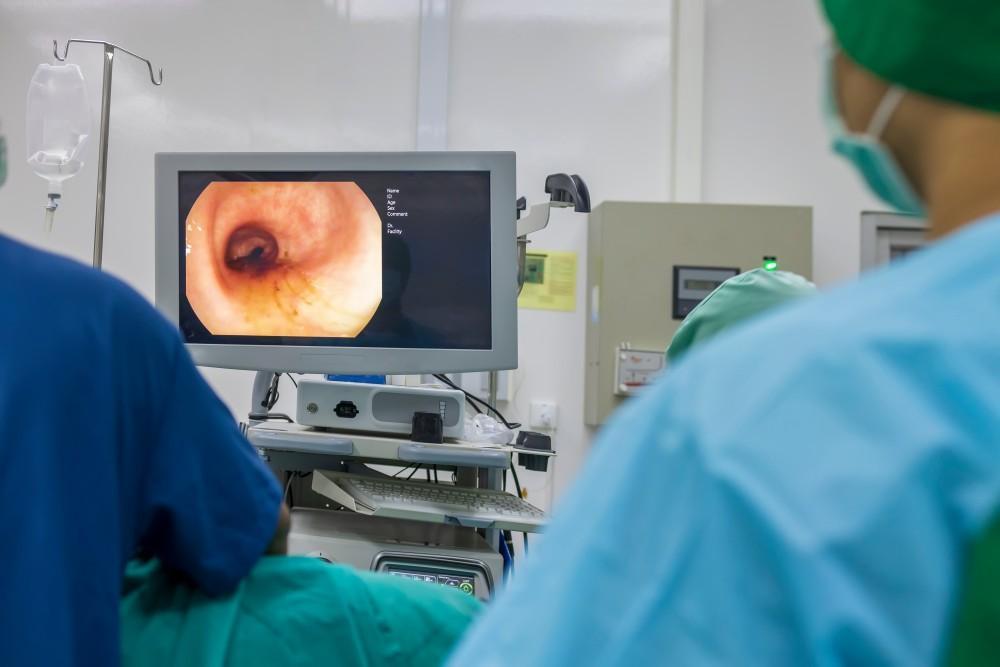
Start the New Year Fresh with a Colonoscopy

While you may not have thought of putting a colonoscopy on your gift list this year, it’s not too late to add it to your New Year’s resolutions. Unlike the many resolutions that require willpower to accomplish, you don’t have to do much to make this one come true.
A colonoscopy is still considered the gold standard for evaluating your colon. Colonoscopies are more accurate and definitive than are at-home testing methods.
In addition, your colonoscopy can double as a treatment, if necessary. When we detect abnormal tissue, such as polyps, we remove them on the spot.
At Colon and Rectal Surgeons of Greater Hartford, our team recommends regular colonoscopies so that any abnormality can be removed, and any cancer found treated and cured.
We believe so strongly in the value of colonoscopies that we even offer Saturday colonoscopy clinics at our offices in Bloomfield, South Windsor, and Plainville, Connecticut, in addition to weekday appointments.
Why should you start your new year with a colonoscopy? Following are just a few reasons.
Colonoscopies save lives
Even though colon cancer is a highly curable disease when caught early enough through screenings, it’s the third leading cause of cancer deaths in women and men in the United States (except for skin cancers). Millions of Americans still don’t undergo colon cancer screening. Each year, more than 50,000 people die from the disease.
When you have a colonoscopy, we don’t just look for abnormalities. We remove them, too. One of the most common growths that we find and remove are polyps. Although polyps are usually benign, some are precancerous. If left in place, they could develop into cancer over the next 10-15 years.
After we remove the polyp, it has a 0% chance of becoming cancer. If we don’t find any polyps, you probably don’t need another colonoscopy for 10 years. If we do find one or more, we may recommend another colonoscopy in a few years.
It’s not as bad as it sounds
A lot of people avoid having colonoscopies because the process sounds so unpleasant. They don’t want to fast before the procedure, drink laxatives to clear their bowels, or have a miniature camera inserted through their anus to examine the length of their colons.
However, imagining the procedure is almost more traumatic than actually going through the process. Colonoscopies themselves are painless, thanks to the sedation you receive.
You may have prep choices
Most people dread the preparation that’s needed to thoroughly cleanse your colon, which involves both a period of fasting and a period of laxative use. However, those options have been improved, too. You may be able to choose from:
- Traditional prep: 4 liters of polyethylene glycol (PEG)-based prep the night before
- Split prep: Half PEG prep the night before; half in the morning
- Lower volume prep: 2-3 liters of saline-based preps
- Pill prep: 12 pills plus water the night before; 12 in the morning
We may recommend one type of prep for you over another, based on any pre-existing conditions, such as kidney disease.
Colonoscopies are usually “one and done” — for a while
Unlike at-home tests, which must be repeated every few years, if you’re at average risk for colon cancer and we don’t find polyps or other abnormalities, you probably won’t need another colonoscopy for 10 years. You can relax, knowing that your colon is healthy and cancer-free.
How often you have a follow-up colonoscopy depends on which risk category you fall into. We let you know your risk category based on your family history as well as your personal medical history. Risk categories and their corresponding recommended colonoscopy schedules are:
- Average risk: Start screening at age 45; repeat colonoscopy every 10 years
- Increased risk: Start screening before age 45; repeat colonoscopy every three years
- High risk: Start screening eight years after diagnosis of inflammatory bowel disease (IBD); repeat colonoscopy every 1-3 years
Start the new year right and schedule your colonoscopy today. Call our office nearest you (Bloomfield, South Windsor, or Plainville, Connecticut), or schedule an appointment online at your convenience.
You Might Also Enjoy...


What Happens When an Abscess Is Left Untreated?

Bathroom Habits That Actually Damage Your Colon Health

Why You Might Need an Anal Pap Smear — Plus, How to Prepare

How a Colonoscopy Can Save Your Life


